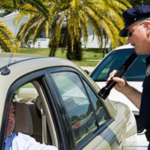Conviction Reversed Due to Inadmissible Hearsay
Generally, hearsay is inadmissible; however, there are many exceptions to the hearsay rule. If inadmissible hearsay is presented at trial, a conviction might get reversed.

Federal Hearsay Rules
In United States v. Freeman, No. 11-1798 (Sep. 13, 2013), the Sixth Circuit reversed the defendant’s conviction for conspiracy to commit murder for hire. The FBI had wiretapped the cell phones of several individuals as part of an ongoing drug investigation. The calls revealed that the defendant and several others planned to kill the victim for stealing cash, jewelry, and other items from one of the codefendant’s homes. More than 23,000 recorded conversations existed, seventy-seven (77) of which were played for the jury. This case involved a dispute over inadmissible hearsay.
The issue in the case was that an FBI agent was allowed, over defense objection, to give his impressions of many of the calls (hearsay later determined to be inadmissible). The judge admitted his opinion testimony under Fed. R. Evid. 701 as being based on his personal knowledge of the investigation and offered in his capacity as a lay witness. Officers and agents are frequently permitted to testify to their “interpretation” of wiretapped calls on the theory that jurors need assistance understanding the alleged co-conspirators’ language.
The Court of Appeals rejected this reasoning regarding inadmissible hearsay, however, noting that the commentary strayed far beyond permissible lay opinion testimony because:
(1) it broadly illustrated the prosecution’s theory of the case for the jury,
(2) it suggested that the agent’s interpretations were substantiated by voluminous information never presented to the jury,
(3) it formed conclusions for the jury that they were competent to reach on their own, and
(4) it infringed upon the jury’s role in deciding what to infer from the evidence.

What is hearsay?
A hearsay statement is an out-of-court declaration offered to prove the truth of the assertion. In other words, hearsay is a statement made, not during a current hearing, offered by a witness to prove the assertion made in the out-of-court statement. The “hearsay rule” is the name of the prohibition against introducing out-of-court statements that fit this definition. There are several exceptions to the hearsay rule; however, it takes years of experience for a lawyer to achieve a level of expertise in this area of the law.

Criminal Defense Lawyers Who Win at Trial
You will want the strongest possible defense if you are accused of a felony or misdemeanor. The defense lawyers with LEWIS & DICKSTEIN, P.L.L.C. will do everything possible to defend and protect you, including seeking to exclude inadmissible hearsay. Using a unique team approach, our firm can achieve extraordinary outcomes unattainable by other criminal defense attorneys in Michigan. If you call us, we will take the time to talk with you, answer your questions, and address your concerns.
Call us today at (248) 263-6800 for a free consultation or complete an online Request for Assistance Form. We will contact you promptly and find a way to help you.












